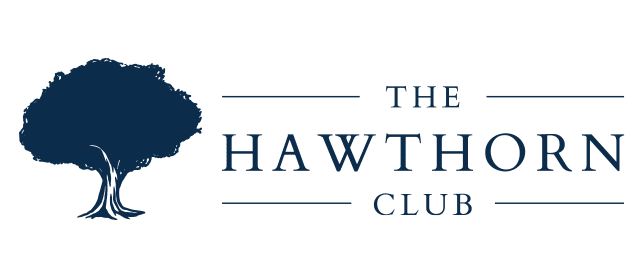In conversation with
Carla Tully
CEO & Co-Founder, Earthrise Energy

Carla Tully

Alice Gibson
The global Covid-19 pandemic has sparked heartening instances of ethical leadership from governments, companies and individuals. It has also sparked concerning instances of ethical failure. The Hawthorn Club’s APAC Advisor, Alice Gibson, is studying the ethical leadership phenomenon. In this conversation series she talks to some of the Hawthorn women about their experience of ethical leadership, and what this means for them during the Covid-19 pandemic.
Alice:
What’s the most important difference you’ve experienced during the COVID-19 crisis, compared to business as usual?
Carla:
Just to give you a little bit of framing, I’m in the middle of starting a new business, and raising capital. I have one full-time employee and several other folks who are in various degrees of support. We are creating a new energy company.
The pandemic has brought into sharp focus the artificial separation between work and personal life: we think that we can separate human beings into these discrete buckets and expect that they’re able to do all of their work and be the company person, without any regard to anything else around them. I was on a Zoom call with an investor the other day. He was working from his front porch, and his five-year-old daughter comes up in her princess outfit in the middle of the conversation, and then proceeds to stub her toe, and cry on his lap.
Typically, this type of conversation would be formal, and the least formal you might get would be a little bit of chat about family. But this was a totally different interaction, one that, pre-pandemic, you would never, ever have had. He and I were able to smile and laugh about it. I could talk to his daughter on the Zoom, and interact with her, and I could see him comforting her as a father; I could see the relationship that he had with his children. How we reacted to the stubbed toe – the unexpected interjection of the personal into the professional – deepened our relationship and trust in each other. These are things that show us that we are whole people, we are not the partial people that show up at the office.
That has become part of my general leadership style, to lead the whole person. It doesn’t mean that you lower your expectations, or reduce accountability or responsibility, but it means that you create a very open environment. You’re acknowledging up front that people have other aspects of who they are and what they are, and other pressures. You can work together to make sure that all of the work that needs to get done, gets done, but you don’t break people in the process. You actually can help build them up, and build that trust, and create a stronger team off the back of it.
Alice:
That’s a nice segue to the next question; tell me about a time prior to COVID-19, when you’ve experienced or demonstrated ethical leadership?
Carla:
I want to switch gears from the leadership of people side of it, and go to the leadership of business, as it translates to how one interacts with the community, and the broader markets within which we operate.
When I was leading a business in the UK and Ireland, we were part of a shifting market design. The whole structure of the market was being redone and we were one of the key stakeholders. We had pulled together quite a bit of analysis for own purposes, to understand the potential changes. We had some serious concerns that the initial set of rules that were emerging would cause problems for the system.
We were constantly getting asked by some of the journalists and politicians to opine on the new market design. But we did not share our concerns or analysis with them. Instead, we went to the stakeholders responsible for designing the market, one-on-one, and said, “We have a problem, together. We’re going to try to give you access to the analysis that we’re doing, so that you can put in place the right rules to avoid this type of problem.” So that’s exactly what they did, they opened up their team, we brought in our team, and we were able to start working them through our analysis. We invited them to replicate the analysis. We would give them whatever information that they needed to be able to create the right set of market conditions.
It really started with a set of trusted relationships, which were reinforced through the interaction. Because we engaged constructively and transparently, and didn’t play a game of ‘gotcha’, the decision makers could hear our concerns and improve the market design.
Alice:
What about that stands out as ethical leadership?
Carla:
If you’re operating in a market, you need that market functioning. If you are profiting as a business off a non-functioning market, especially one that you potentially help to create, it’s not sustainable. I don’t think it’s ethical. I don’t think it’s good business. You will find yourself in court, you will find yourself not trusted in the market, second guessed by the market monitors, second guessed by the regulator, by everybody, every step of the way.
I hold to the belief that ethical leadership – using your terms – is the same thing as good business. It’s not about putting a short-term benefit ahead of that longer-term value creation. It’s understanding the feedback loops that are going to come from the work that you do. If you help to create a robust market structure, and then you create a strategy that is able to compete and win in that robust market structure, you have a strong resilient business that is creating real value. As opposed to a “I can get this short-term win in a market that I’ve helped to break”.
If you create the wrong structures, then that erodes trust. Then you find yourself having problems around all of your stakeholders – your employees, your unions, your everything. The piper comes, it always comes.
It’s about thinking from the standpoint of, “what is the system within which you’re operating and the impact that you have there? What is your responsibility to the community? What is the responsibility that you have to the business and your people? If you’re able to work through those levels of analysis, over multiple timeframes, then you’ll usually get to the right answer. It starts to become very clear how the decisions you’re making, and the manner in which you’re leading, are either going to create or destroy value.
Alice:
And when you say that, what value do you have in your mind?
Carla:
Let’s start with the simplest one, which is you’re creating economic value of the enterprise. If you do not create a solid, profitable business, you cannot compete for capital, you can’t compete for low cost of capital, and more capital won’t flow into the good things that you’re doing.
And in our industry, in energy, the things that we do are inherent goods. These have a societal benefit. We power the safety, and prosperity, and health, and education and everything that makes up our way of life. If we want to be able to continue to do that, we need to be able to deliver a good solid return to investors. But that’s not enough, that’s not the only thing, because we have a broader context within which we operate, and that’s those other levels that we need to be able to look at, which is, what’s the impact on society, broadly speaking? And then, what’s the impact on individuals?
If you are creating societal value, it will create more value for your business, it will create more value for your people. If you’re creating more value for your people, it will create value for society, it will create value for the business; they’re all linked. The problems emerge when you de-link them.
Alice:
Is there an example of ethical leadership that stands out for you, during the pandemic situation?
Carla:
There is a temptation in the context of the pandemic to either be Chicken Little, or to be Pollyanna-ish. I think one of the most ethical things business leaders can do, in the context of the pandemic, is make a sober assessment of what this circumstance means for their business.
In my context, it started with an analysis to say, does this create a flaw in our business model? Is there something about this that makes our business model no longer as amazing as we think it is, as necessary as we think it is? Can our business still be executed in the same way, to the same effect? And being able to take a very hard look at that, because if the answers to those are, “No,” I have a lot of people, who are supporting the business, that I need to have a very honest conversation with.
Does our business still make sense? Can our business still be launched at this moment in time? Happily, the answer is, “Yes.” But we took a hard look, and we were prepared for any answer that came out of that. I think, if you don’t go in prepared for any answer that comes out, then you will only get the answer that you want.
So that was at the company level. At the societal level it was, “how does the pandemic impact the need for our business?” Our answer ended up being, “the need for us is greater than it had been before.”
Alice:
One thing that you’ve touched on a number of times is leadership, and leadership style. What’s leadership for you?
Carla:
Respect. Very simple. Respect.
Alice:
Why is that leadership?
Carla:
If you have respect for yourself, if you have respect for the people that you are leading, if you have respect for what you are leading them toward, I think the hard decisions become easier.
Alice:
Why?
Carla:
It becomes easy to know that you shouldn’t embarrass your regulator, it becomes easy to know that you should have an honest conversation with an employee who isn’t performing well. For me the answers start to become a little bit more obvious, of how you should you treat people.
If you start with the idea that you should treat them with respect; then, you’re going to start with being honest. You’re going to engage in difficult conversations. You are going to create an environment for growth. You are going to treat people as complete people. You are going to be long-term value focused. You are going to be able to think across time, and across these different levels of analysis.
Alice:
There’s plenty of people in “leadership” positions that don’t treat others with respect, and don’t treat people as complete people. Why is that important for you?
Carla:
If you don’t, I think it’s just a path of value destruction. Everybody has seen the person that works at a firm, who came in full of great ideas, and full of energy, and excited about the purpose of the company. And then, the next thing they know, they’re caught up in the politics, and they’re sidelined and their ideas aren’t heard. You’ve taken this brilliant mind that you’re paying for, and they’re keeping it all away from you, because you haven’t engaged with them in a way that was respectful to them. Maybe you’re paying somebody $100,000 a year, and you get $20,000 of value out of them, because of how you’re treating them.
Alice:
Let me finish with the last question: what do you think are the timelines for returning to normal, and do you think we will return to normal?
Carla:
I don’t think we’ll return to normal. I think it’s just like 9/11. For the U.S., we don’t remember a time when you could walk to your gate without going through security. As a society, we will change, and we will adapt. The easiest thing that people can see now is the ability of people to work remotely, work from home; I think that’s going to create ripple effects throughout the structures of our society. We have now seen that that the work can still get done, so that whole dynamic is going to shift.
Alice:
More specifically for the energy sector, what impact do you think that this will have on the clean energy transition?
Carla:
None. The energy transition is a long-term event that we are in the middle of navigating. Some near-term investments and policy changes will be delayed, but I don’t actually think that the pandemic will catalyze any meaningful change in direction. And, irrespective of the pandemic, we have a lot of work to do.
(Please note this is an amended transcript of the conversation for the purposes of readability.)


